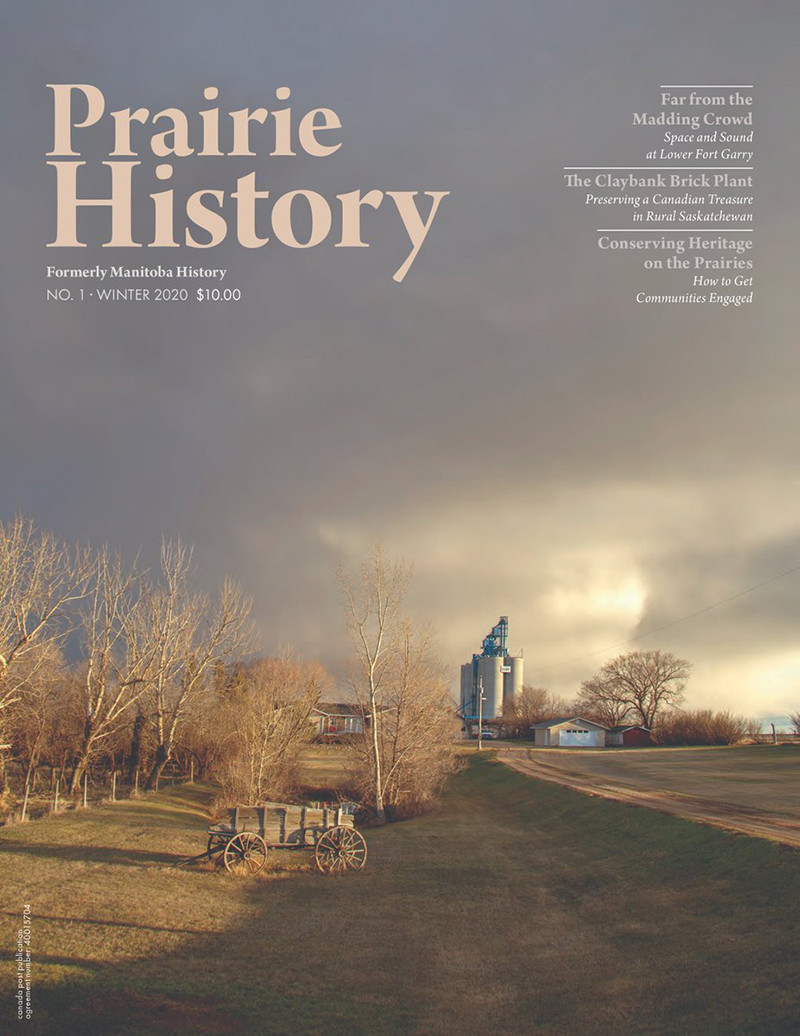Broadening the scope
Manitoba Historical Society launches Prairie- focused magazine
The Manitoba Historical Society (MHS) launched their new magazine, Prairie History, on March 6, replacing the 40-year-old Manitoba History.
Editor Robert Coutts says “It was time to broaden the scope ... looking at Manitoba, Saskatchewan and Alberta, within the context of Prairie history in the northwest.
“Historically ... the boundaries that we know didn’t amount to anything ... I wanted to focus it more on the northwest as an entity. Even though we call it the “Prairie history” it is not just the prairies. (It’s also) everything (from the) subarctic to borderlands (the American northwest).”
Coutts hopes “to move into new topics, to get new authors. In one province, you tend to get a lot of the same authors (submitting), so I wanted to broaden that. I wanted new stories ... from different perspectives, (including) Indigenous stories from Indigenous writers.”
The cover of the first issue of Prairie History, the new magazine from the Manitoba Historical Society. // Supplied photo
“At first, there was some questioning why the MHS (would publish) a journal that is across the west, (but) I managed to convince the executive council and the members (of MHS that it) was important to society to get new interest and subscribers. At first glance, people say it might not fit in, because it is not just Manitoba, but I think it does.” Coutts says.
“The transition is going to take a little bit of time. Prospective authors are not aware of the change. When you expand like this, you tend to get more submissions, which I am already getting. It allows you to be a bit more choosy about publishing better-quality articles and looking for things like Indigenous histories. I want to publish articles that relate to more contemporary topics, like gender.”
Coutts says the new publication, like its predecessor, includes two to three peer-reviewed articles and some shorter, more popular articles, as well as a new section about the material culture of historians and archivists.
Mary Horodyski, archivist, researcher and writer, wrote a peer-reviewed article exploring the history of incarcerating people with intellectual disabilities at the Manitoba Developmental Centre, which still houses 130 people with disabilities today.
“This isn’t just history,” she says. “This is happening in the present day. What the government does, it does in our name, because we pay for it with our taxes, and we elect those officials. I think it is very important that we know, as citizens, what the government is doing. Do we agree with the government incarcerating people with disabilities? Let’s think about it and decide if we do or not.”
Horodyski says Prairie History was the only magazine she considered for her article, because it is “accessible in both print and text-searchable digital versions, and it is inexpensive. This journal is accessible to Manitobans and especially Winnipeggers, plus it is scholarly (and peer-reviewed), but it is still written for a general audience. It is not behind any firewall. You don’t have to be a part of a university library to access it.”
Horodyski considers this kind of accessibility essential and is concerned by the lack of access to archives in Manitoba. “Governments are legislated to preserve records and make these records accessible, yet all three government archives in the city are only open (from) 9 to 4 Monday to Friday, (so) the average citizen cannot access archives from our government. And that needs to change.”
Prairie History is available for purchase at McNally Robinson Booksellers and at university and public libraries. Head over to the MHS website to become a member, which includes both a digital and print subscription of Prairie History.
Published in Volume 74, Number 22 of The Uniter (March 19, 2020)






